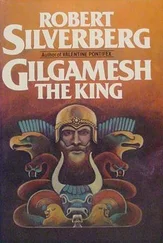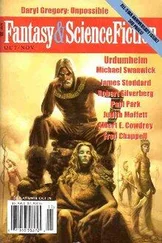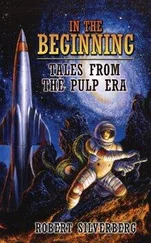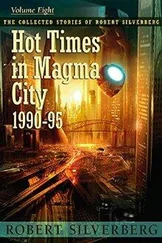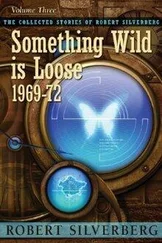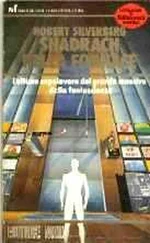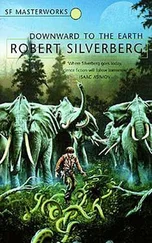June 1, continued
If the ruler of the world is schizoid, doesn’t this have serious consequences for his subjects? I think not. I’ve studied history closely. Throughout all of history people have gotten the rulers they deserved, the appropriate rulers. A sovereign mirrors the spirit of his times and expresses the deepest traits of his people — Hitler, Napoleon, Attila, Augustus, Ch’in Shih Huang Ti, Genghis Khan, Robespierre: none of them accidents or anomalies, all of them organic outgrowths of the needs of the time. Even when a ruler imposes his will by conquest, as I have not, the historical imperative is at work: those people wanted to be conquered, needed to be conquered, or they would not have fallen to him. So too now. Schizoid times demand schizoid government. The people of the world are dying lingering deaths of organ-rot; an antidote exists but we do not put it into widespread distribution; the people of the world accept this situation. I define that as madness. A mad government, then, for a mad citizenry, a government that offers promises of antidotes but never delivers. Of course there isn’t enough of the Antidote to go around. But there’s some to spare. We do not give priority to expanding the supply. We offer hope but no injections, and this somehow sustains our subjects. Madness. A world that destroys itself with cloud-borne antigens is mad; one that gives itself over to an oligarchy of strangers is mad; fitting then that the oligarchs themselves are mad.
But are we? Am I? I have done more research into the symptoms of schizophrenia this morning, consulting Shadrach’s medical library in Shadrach’s absence. Here I have a text that says that two of the most common symptoms are delusions and hallucinations. “A delusion,” I am told, “is a persistently held belief, contrary to reality as it is perceived by most people, that is not dispelled by logical arguments. Delusions in schizophrenia often hove a grandiose or a persecutory theme: the individual may express a belief that he is Jesus Christ or that he is the object of a worldwide search by a supersecret organization.” I have never expressed the belief that I am Jesus Christ. I do frequently believe with great conviction that I am Genghis II Mao IV Khan. Is this belief delusive? I believe that this belief is congruent with reality as it is perceived by most people. I believe that my belief in this belief is founded in reality. I believe I genuinely am Genghis II Mao IV Khan, or that at least I have genuinely become Genghis II Mao IV Khan, and that therefore this belief is not schizophrenic, not delusive. On the other hand, I also believe I am in imminent danger of assassination, that there is a worldwide conspiracy against my life. Classic schizoid delusion? But Mangu is really dead. They pushed Mangu from a window seventy-five stories above the ground. Do I imagine Mangu’s death? Mangu is really dead. Do I misconstrue it? I know there are those who believe he committed suicide. This is delusive. Mangu was murdered. They might come for me at any time. Despite all my precautions. Am I deluded? Then I accept my delusions. As appropriate to my position in history. And if the danger is real, how wise of me to have barricaded myself behind the interfaces!
Let us go on. Hallucinations. “A hallucination is a perception of sight, sound, smell, or touch that is not ‘real.’ In schizophrenia, hallucinations most frequently take the form of voices.” Aha!’ “A patient may be tormented by voices ordering him to jump out of a window or accusing him of heinous crimes.” What’s this about windows? Could Mangu have been schizoid too? No. No. It doesn’t apply. Mangu wasn’t intelligent enough to be schizoid. I’m the one who hears voices, and my voices don’t advise lunacy. “Sometimes the hallucination consists only of noises or isolated words, or the patient may seem to ‘hear his thoughts.’ Other hallucinations include frightening visions, strange smells, and odd bodily sensations. ”
I think this applies. If so, I accept it freely. But there’s more. “Delusions and hallucinations are not limited to schizophrenia,” it says. “They may occur in a wide range of organic conditions (e.g., infections of the brain substance or a decreased flow of blood to the brain caused by arteriosclerosis). ” Is that the explanation? When Father Genghis whispers to me, it’s nothing but a bug in my cerebellum ? When Mao whispers in my ear, it’s merely a clotted artery? I should speak to Shadrach about this when he returns. He worries about my arteries. He might want to do another transplant. After all, I still have some of my own original blood vessels, and they’re getting old. I’m, what, eighty-seven years old? Eighty-nine, ninety-three? Yes, perhaps ninety-three. So hard to keep the numbers straight. But old, very old.
Great Father Genghis, am I old!
In Nairobi the air is clear, dry, cool, not at all tropical although the city is only a degree or so from the equator, just about the same latitude, indeed, as fiery Cotopaxi and ravaged Quito. Quito, high in mountainous country, was cool also, but that was only a dream, a transtemporal illusion. Whereas Shadrach actually is, so far as anything is actual, in Nairobi. “We are much above sea level,” explains the taxi driver. “It is never too hot here.” The taxi man is hearty, outgoing, talkative: a Kikuyu. he says, this being his tribe. He wears huge dark sunglasses and a blue uniform that looks fifty years old. He seems healthy, although Shadrach had been half expecting to find everyone outside Ulan Bator afflicted with organ-rot. “I speak six languages,” the driver announces. “Kikuyu, Masai, Swahili, German, French, English. You are British from England?”
“American,” Shadrach says, though the label sounds odd in his ears. What else is he to answer, though? Mongol?
“American? Ah! New York? Los Angeles? Once we had plenty Americans here. Before the big death, you know? That plane they come in, it was big, too big, it was always full, all those Americans! They come to see the animals, you know? Out in the bush. With cameras. Not any more. Long time, no Americans here. No anybody here.” He laughs. “Different times, now. Too bad, these times. Except for the animals. Good times for the animals. You see, there, by the road? Hyena. Right by the road!”
Yes, Shadrach sees: a lumpy, sinister beast, like a small ungainly bear, squatting at the edge of the highway. The driver tells him that there are wild animals everywhere now, ostriches strutting down Nairobi’s main streets, lions and cheetahs preying on the suburban farmers, gazelles moving in huge fluttery herds across the university campus. “Because there are not enough people now,” he says. “And most of them too sick. Not much hunting now. Last week, big elephant, ripped up thorn tree in front of New Stanley Hotel. Very old thorn tree, very famous. Very big elephant.” Of course. With the world’s population cut back now to early nineteenth-century levels, the animals would be starting to reclaim their domain. The Virus War had left them unscathed, even the primates closest to man: only the unlucky human chromosomes could harbor the rot.
On the way to the city he sees more animals, two stunning zebras, some wart-hogs, and a group of heavy-humped spindle-shanked antelopes; these are wildebeests, the driver informs him. It pleases Shadrach to observe this resurgence of nature, but the pleasure is tainted by sadness, for if wildebeests graze on the margins of great highways and grass grows in city streets, it is because the time of man is coming to its end, and Shadrach is not ready for that.
Actually not much grass is growing in the streets of Nairobi, at least not on the broad, elegant boulevard on which the taxi enters town. Flowering shrubs erupt in beauty on all sides. After monochromatic Ulan Bator, Nairobi is a visual delight. Bougainvillea, red and purple and orange, cascades over every wall; some creeping succulent with densely packed lavender blossoms carpets the islands in the roadway; thick, many-tentacled aloe trees stand like sentinels at street corners; he recognizes hibiscus and jacaranda, but most of the bushes and trees that fill the streets with such gaudy masses of color are unknown to him. The effect is gay and sparkling and unexpectedly moving: who could feel despair, he wonders, in a world that offers such intensity of beauty? But in that moment of transcendent joy that the glowing flowers of neatly manicured Nairobi create comes its own instant negation, for Shadrach asks himself also how, having been turned loose in this beautiful world, we could have contrived to make such a woeful mess out of so much of it. Nevertheless this serendipitous city inspires more pleasure than gloom in him.
Читать дальше

